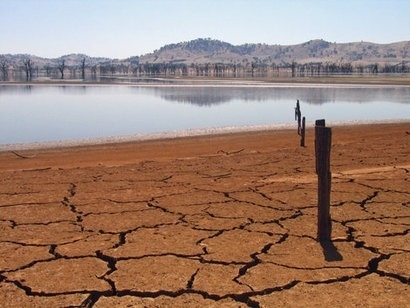
The research, published in the report ‘Investment in a time of climate change’, reveals that investors can manage risks most effectively by factoring climate change into their risk modelling. This will in turn require a significant amount of behavioural change for most of them. The report was launched last week in London ahead of the negotiations in Paris for a new global climate agreement by the end of 2015. It sets out key actions for investors to manage downside risks and access opportunities and is the culmination of a research project that began in September 2014.
Investment modelling in the Mercer report estimates the potential impact of climate change on returns for portfolios, asset classes and industry sectors between 2015 and 2050, based on four climate change scenarios and four climate risk factors. These scenarios represent a rise in global temperature above pre-industrial era temperatures of 2°C, 3°C and two 4°C scenarios (with different levels of potential physical impacts).
The report was produced by Mercer in collaboration with 16 investment partners that collectively are responsible for more than $1.5 trillion. Additional support was provided by IFC, the private sector arm of the World Bank Group, in partnership with Federal Ministry for Economic Cooperation and Development, Germany, and the UK Department for International Development (DFID). Contributions were also provided by Mercer’s sister companies NERA Economic Consulting and Guy Carpenter, and 13 advisory group members also provided input.
The investment modelling found that climate change will create investment winners and losers as it increasingly impacts on investment returns. Investors will therefore need to take action to understand and mitigate the risks and maximise value at the asset, industry sector and portfolio level.
The differentiation between winners and losers will be most noticeable at industry level, depending on which climate scenario plays out. The average annual returns from the coal sub-sector, for example, could ball by anywhere between 18 percent and 74 percent over the next 35 years, with effects being more pronounced over the coming decade (eroding between 26 percent and 138 percent of average annual returns over the next 10 years). However, the renewables sub-sector could see average annual returns increase by between 6 percent and 54 percent over a 35 year time horizon (or between 4 percent and 97 percent over a 10-year period) depending on the climate scenario.
Global warming of 2°C could see return benefits for emerging market equities, infrastructure, real estate, timber and agriculture, whereas a temperature rise to 4°C could inflict a negative impact.
“Whilst it is challenging, we have attempted to quantify the potential investment impacts of climate change” said Helga Birgden, Partner and Global Responsible Investment Business Leader at Mercer. “Our report identifies the ‘what?’ the ‘so what?’, and the ‘now what?’ in terms of the impact of climate change on investment returns. These insights enable investors to build resilience into their portfolios under an uncertain future. We recognise that markets do not always price in change; they are notoriously poor at anticipating incremental structural change and long-term downside risk until it is upon us.”
Ms Birgden added that the report can act as a guide to creating an action plan, whether setting portfolio de-carbonisation targets, investing in solutions that address risks and opportunities, or increasing engagement with managers and companies. Engaging with policy makers is also crucial and helps empower investors in their role as ‘future makers’.
Mercer’s Global CIO for Mainstream Assets, Russell Clarke, said that the study will help the world to better prepare for the changes that such a structural and systemic issue as climate change may represent. He added that Mercer believes climate change to be a significant investment risk that investors should be aware of and able to act upon in close collaboration with investment managers.
For additional information:

